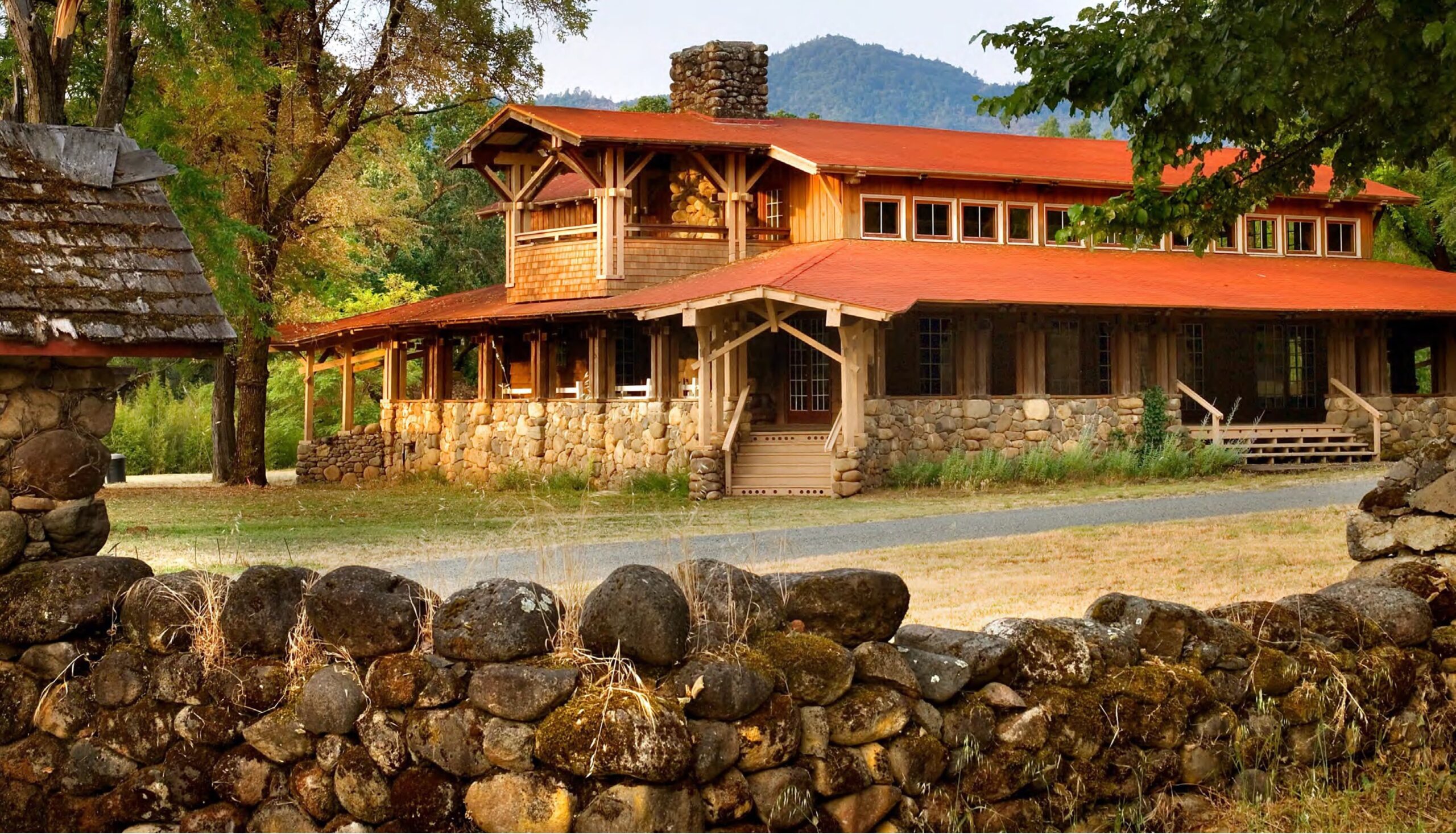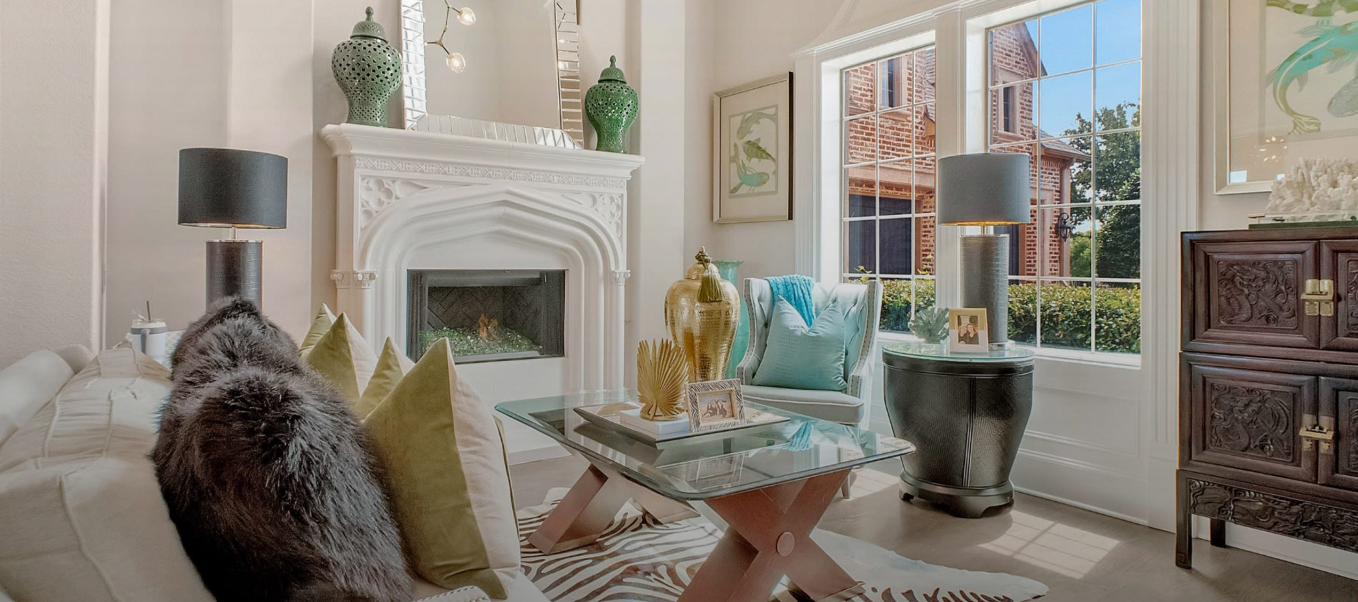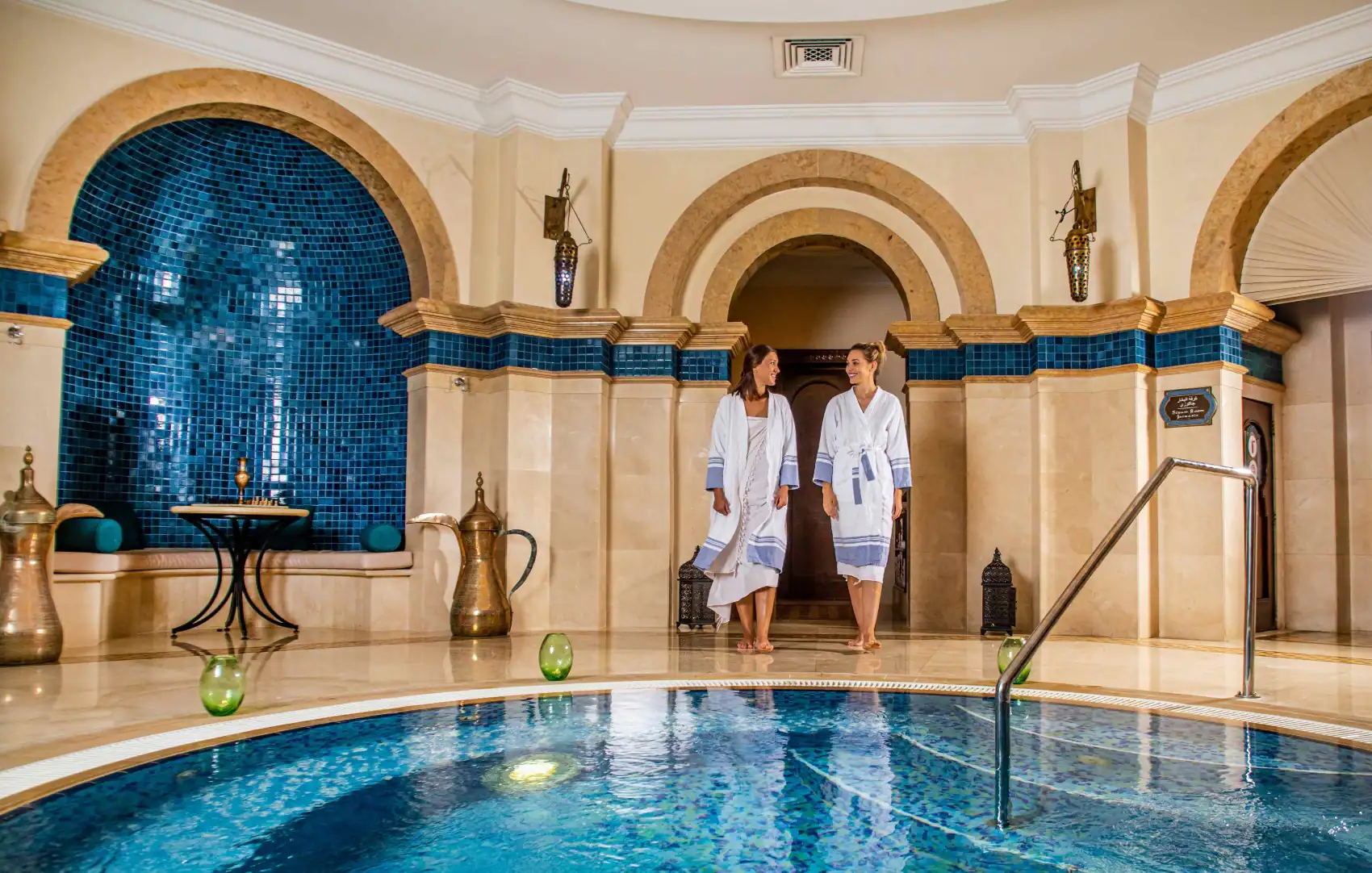Nestled in the azure waters of the Caribbean and scattered across the world’s most remote seas are hidden oases that embody the epitome of luxury. These are the personal island resorts of the rich and famous, where the boundary between paradise and reality blurs, and privacy is a priceless commodity.
In an age where seclusion is treasured more than ever, these personal island getaways have become the ultimate symbol of affluence and exclusivity. Imagine pristine beaches stretching as far as the eye can see, lush tropical forests teeming with wildlife, and crystal-clear waters beckoning you to explore their depths. This is the allure of private island resorts, where the world’s elite escape the daily grind to immerse themselves in luxury, beauty, and tranquility.
But not just the idyllic surroundings draw the wealthy and famous to these hidden retreats. It’s the promise of seclusion, the freedom to create their paradisiacal universe, and the knowledge that no prying eyes or intrusive paparazzi will disturb their peace. In this article, we’ll delve into personal island resorts, exploring the historical origins of this exclusive trend and spotlighting some of the most captivating escapes owned by celebrities and billionaires. Join us on this journey to discover the private island paradises of the world’s elite, where luxury knows no bounds and privacy is the ultimate luxury.
Island Escapes: A Playground for the Wealthy
Historical Origins
The history of personal island ownership is a tale of luxury, power, and a desire for the extraordinary. It’s a narrative that dates back centuries, revealing how islands became coveted symbols of wealth and prestige.
The Historical Context of Personal Islands as Symbols of Wealth
To understand the allure of personal islands, we must journey back to a time when monarchs, emperors, and nobles sought to display their grandeur. In medieval Europe, owning an island was a testament to one’s dominance over land and sea. These exclusive parcels of land served as retreats for royalty, far from the tumult of the mainland.
One notable example is the Swedish island of Gotland, which King Valdemar Atterdag of Denmark acquired in the 14th century. This island fortress was a strategic stronghold, showcasing his wealth and authority. Here, the concept of personal islands as status symbols began to take shape.
Early Examples of Famous Personalities Owning Private Islands
As the centuries rolled on, personal islands continued to captivate the elite. In the 18th century, Empress Catherine the Great of Russia acquired the island of Elba in the Baltic Sea. Her imperial residence on this island served as a luxurious summer escape, complete with palaces, gardens, and a menagerie of exotic animals.
The allure of personal islands extended beyond Europe. In the United States, media mogul William Randolph Hearst was known for his extravagant taste and owned Santa Catalina Island off the coast of California. His opulent estate, complete with a castle and sprawling grounds, symbolized extravagance during the early 20th century.
Modern-Day Appeal
In today’s fast-paced world, one might wonder why owning a personal island is still a coveted dream for the wealthy. The answer lies in the enduring appeal of these secluded paradises, driven by a blend of tradition and contemporary desires.
Discussing Why Owning a Personal Island Is Still Attractive in the 21st Century
Owning an island has transitioned from being a symbol of power to a statement of personal freedom. In a world where privacy is increasingly elusive, personal islands offer a refuge from the prying eyes of the media and the demands of public life. Celebrities, billionaires, and individuals seeking respite from the chaos of modern living are drawn to these private sanctuaries.
The ability to craft your world, far from the demands and distractions of everyday life, is a dream that transcends generations. Personal islands provide a canvas upon which owners can design their version of paradise tailored to their unique preferences.
The Role of Privacy and Seclusion in the Digital Age
In an age when every aspect of our lives is documented on social media and our every move is tracked by digital devices, the need for seclusion has never been more pronounced. Personal islands offer a haven where individuals can disconnect from the noise of the digital world and reconnect with nature.
Moreover, the allure of personal islands is not limited to leisure; they also serve as centers for conservation and sustainable living. Many wealthy individuals use their islands as platforms for eco-conscious initiatives, preserving the natural beauty that initially attracted them to these remote locations.
In the 21st century, personal islands remain timeless symbols of wealth and luxury with a contemporary twist. They are more than just status symbols; they are reflections of the human desire for privacy, seclusion, and the opportunity to create a personal utopia in a rapidly changing world.
Modern-Day Island Retreats: A Playground for the Wealthy
In today’s bustling world, personal island retreats continue to captivate the imaginations of the wealthy elite. These paradises are no longer just symbols of power but have evolved into multifaceted havens that cater to the modern desires of solitude, self-expression, and a connection to the environment.
Seeking Solitude and Serenity
One of the most significant driving factors behind the modern-day appeal of personal islands is the yearning for solitude. In an era where our lives are constantly intertwined with technology and our every move is subject to public scrutiny, these private oases offer a respite from the relentless pace of modern life.
Island owners can wake up to the sound of gentle waves, stroll along pristine beaches without a soul in sight, and bask in the tranquility of unspoiled nature. It’s a rare opportunity to be at one with the elements and find solace in the stillness of the sea.
The Canvas of Self-Expression
Personal islands are more than escapes; they are blank canvases where the wealthy can indulge their creative desires. From designing eco-friendly villas that blend seamlessly with the surroundings to cultivating lush gardens and even creating art installations, island owners can bring their artistic visions to life.
Each island becomes a reflection of its owner’s personality and passions. Some opt for minimalist, eco-conscious designs, while others embrace extravagant opulence. These islands are not just retreats; they are living, breathing expressions of their owners’ desires and values.
Environmental Stewardship and Sustainable Living
Beyond playgrounds for the wealthy, personal islands have also become hubs for environmental conservation and sustainable living. Many island owners are acutely aware of the fragile ecosystems surrounding their retreats and are dedicated to preserving these natural wonders for future generations.
Eco-conscious initiatives are rising, with owners investing in renewable energy, marine conservation, and reforestation efforts. For instance, Leonardo DiCaprio’s Blackadore Caye is a testament to his commitment to sustainable living and environmental restoration.
Personal island resorts remain an enduring dream for the wealthy, offering a unique blend of tradition and contemporary values. These private havens, which once symbolized power and privilege, now stand as a testament to the human desire for tranquility, self-expression, and a deeper connection with nature. As we navigate the complexities of the digital age, these island escapes continue to beckon, providing a sanctuary where time slows down and the soul finds respite.
Challenges and Considerations
While the allure of personal islands is undeniable, owning and maintaining these secluded retreats is not without its challenges and ethical considerations.
Environmental Impact
The construction and development of personal island resorts can have a significant environmental impact. Clearing land for buildings, infrastructure, and amenities can disrupt fragile ecosystems. Conservation efforts are essential to mitigate these effects, and many island owners are actively involved in preserving the natural beauty that drew them to these locations.
Accessibility
Islands, by their very nature, can be remote and isolated. Accessing these retreats often requires additional resources and logistics, from private jets to boats and staff. Ensuring a seamless experience for visitors and maintaining the infrastructure can be a logistical challenge.
Ethical Responsibility
Personal island owners, particularly celebrities and billionaires, are under public scrutiny. Their actions on these islands, from environmental stewardship to responsible tourism practices, are closely watched. Ethical responsibilities come hand in hand with the privilege of owning these retreats, and transparency in their actions is expected.
Financial Commitment
Owning and maintaining a private island is a significant financial commitment. Beyond the initial purchase, ongoing expenses include staff salaries, maintenance costs, and sustainability initiatives. This financial burden may only be sustainable for some, making it essential for prospective owners to weigh the long-term implications.
The Timeless Allure
Despite the challenges and considerations, the timeless allure of personal islands endures. These secluded retreats remain magnets for the wealthy and famous, offering a sanctuary where they can escape the demands of modern life, express their creativity, and positively impact the environment.
As we navigate the complexities of the 21st century, personal islands stand as symbols of the human desire for a deeper connection with nature, a retreat from digital noise, and a canvas for self-expression. While they may have evolved over the centuries, these private paradises continue to capture our collective imagination, reminding us that, for some, the dream of island ownership is a timeless pursuit of luxury, serenity, and environmental stewardship.
Celebrities and Their Island Retreats
The allure of personal island retreats extends far beyond the world of billionaires and business magnates. Even celebrities, known for their glamorous lives in the spotlight, often seek solace and seclusion on their private islands. This section explores the island escapes of three notable figures: Richard Branson, Leonardo DiCaprio, and Johnny Depp.
Richard Branson’s Necker Island
Details about Richard Branson’s Iconic Necker Island

Nestled in the crystalline waters of the Caribbean’s British Virgin Islands lies Necker Island, a true tropical paradise that belongs to the charismatic entrepreneur Richard Branson. This 74-acre haven is a testament to Branson’s love for adventure and luxury.
Originally purchased by Branson in the late 1970s, Necker Island underwent a remarkable transformation. What was once a mere piece of land with a small house is now a world-renowned luxury resort. Guests who visit Necker Island have a once-in-a-lifetime experience, staying in beautifully appointed Balinese-style villas, savoring gourmet cuisine, and basking in the Caribbean sun on pristine beaches.
Its Transformation into a Luxury Resort and Its Famous Guests
Richard Branson’s Necker Island has played host to some of the world’s most influential and famous personalities. From royalty to Hollywood celebrities, this island retreat has been a favored destination for the elite. Notable guests have included Princess Diana, Kate Winslet, and even former President Barack Obama.
Beyond its celebrity allure, Necker Island is known for its commitment to sustainability and eco-friendliness. Branson has dedicated considerable resources to making the island as environmentally friendly as possible, utilizing renewable energy sources and promoting marine conservation efforts.
Leonardo DiCaprio’s Blackadore Caye
An Insight into Leonardo DiCaprio’s Eco-Conscious Island Resort
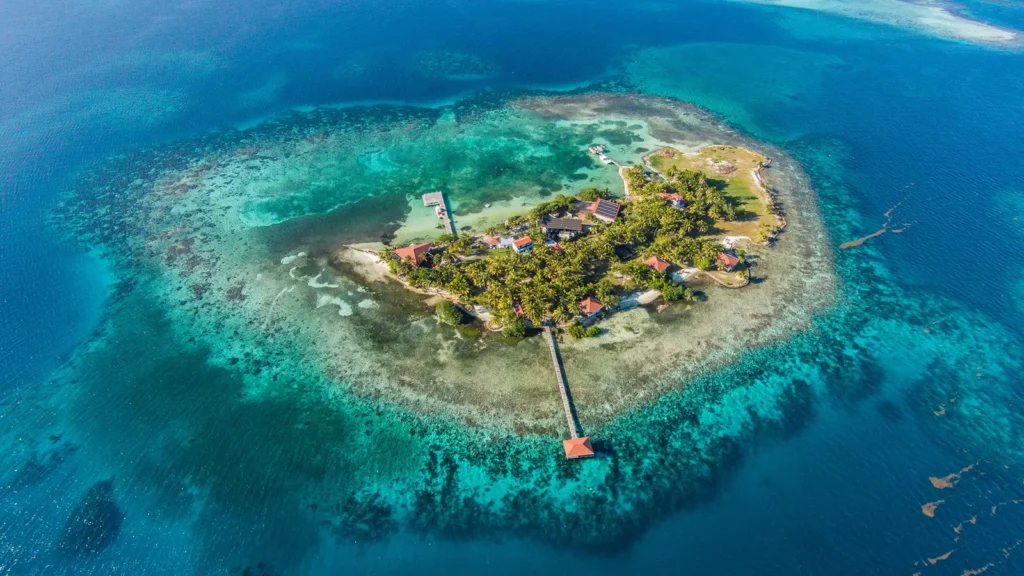
Leonardo DiCaprio, renowned for his environmental activism, has taken his conservation passion to a new level with Blackadore Caye, a private island in Belize. DiCaprio’s vision for Blackadore Caye goes beyond the typical luxurious island retreat; it’s a testament to his commitment to sustainable living and ecological preservation.
The actor purchased the island to transform it into an eco-conscious resort that exemplifies the harmony between luxury and environmental responsibility. DiCaprio envisions Blackadore Caye as a model for sustainable tourism, where guests can immerse themselves in nature while leaving a minimal ecological footprint.
The Actor’s Efforts in Environmental Conservation
DiCaprio’s dedication to preserving the fragile ecosystems surrounding Blackadore Caye is commendable. The island’s master plan includes environmentally sustainable features, from renewable energy systems to innovative waste management practices. The resort will serve as an educational hub for guests, highlighting the importance of conservation and environmental stewardship.
DiCaprio partners with leading environmental organizations to restore the island’s coral reefs, mangroves, and native wildlife populations. His ambitious project is a testament to celebrity influence’s power in driving positive change for our planet.
Johnny Depp’s Little Hall’s Pond Cay
Exploring Johnny Depp’s Personal Island in the Bahamas
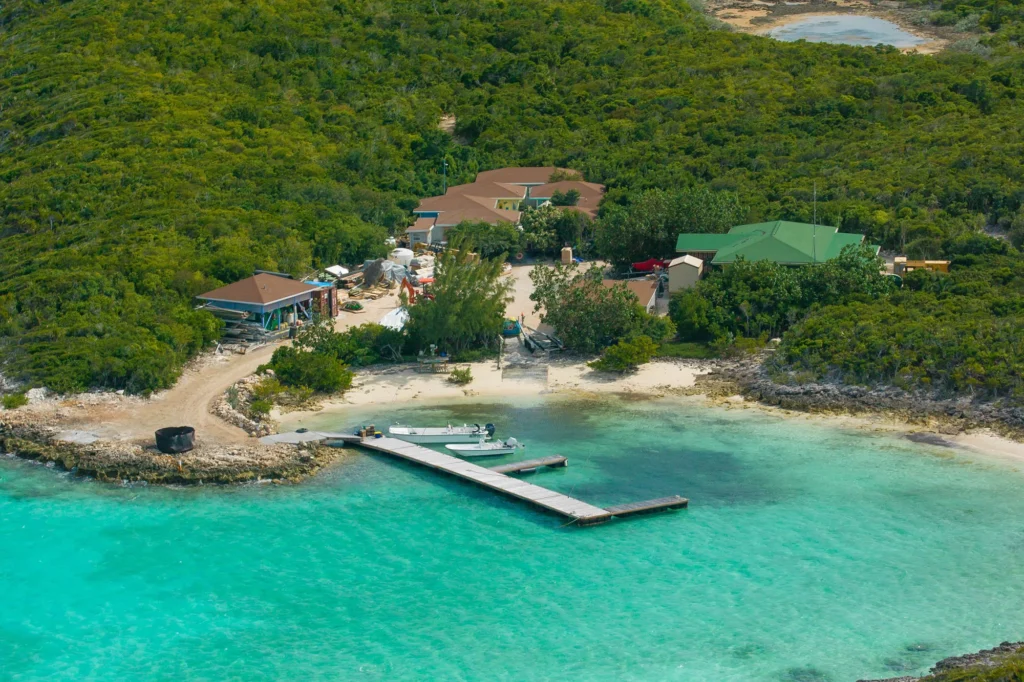
Johnny Depp, the enigmatic actor known for his diverse roles, has a personal sanctuary in the Bahamas known as Little Hall’s Pond Cay. This private island is a secluded haven nestled in the azure waters of the Exumas.
Little Hall’s Pond Cay offers a retreat far removed from the hustle and bustle of Hollywood. Depp purchased the island to find solace and respite from the demands of his high-profile career. It’s a place where he can unwind, surrounded by lush tropical landscapes and the gentle ocean lull.
The Island’s Unique Features and Depp’s Connection to It
What makes Little Hall’s Pond Cay truly unique are its untouched natural wonders. The island boasts pristine beaches, hidden coves, and diverse wildlife. Depp’s love for art and creativity is reflected in the island’s design, with charming, eclectic buildings and bohemian whimsy.
For Johnny Depp, this private island represents more than just a retreat; it’s a personal connection to the natural world, where he can find inspiration and peace amidst the chaos of his profession. It’s a testament to the human need for a sanctuary, even for those who live in the limelight.
In celebrity island retreats, these paradises offer a glimpse into the unique desires and passions of the rich and famous. From Richard Branson’s luxury haven to Leonardo DiCaprio’s commitment to conservation and Johnny Depp’s connection to nature, these islands are not just escapes; they are reflections of the individuals who call them home, even if only for a brief respite from their hectic lives.
The Personal Islands: Reflections of Celebrity Lifestyle
These personal islands owned by Richard Branson, Leonardo DiCaprio, and Johnny Depp are more than luxurious retreats. They offer a glimpse into the unique lifestyles and values of these celebrities. Each island serves as a canvas where their personalities, passions, and visions come to life.
Richard Branson’s Adventurous Spirit
Richard Branson, known for his adventurous spirit and entrepreneurial prowess, has turned Necker Island into a playground that reflects his love for exploration and luxury. The transformation of Necker Island from a simple retreat into a high-end resort embodies Branson’s innovative approach to business and leisure. It’s a place where guests can experience the thrill of adventure while indulging in the finest luxuries, all against the backdrop of the Caribbean’s natural beauty.
Leonardo DiCaprio’s Environmental Advocacy
Leonardo DiCaprio’s Blackadore Caye is a testament to his unwavering commitment to environmental conservation. It’s not merely a private island but a platform for his mission to raise awareness about climate change and sustainable living. DiCaprio has set a powerful example for others in the entertainment industry by demonstrating that luxury and eco-consciousness can coexist. Blackadore Caye is more than a retreat; it symbolizes his dedication to protecting our planet.
Johnny Depp’s Bohemian Paradise
Johnny Depp’s Little Hall’s Pond Cay reflects his artistic and bohemian sensibilities. The island’s unique design and charming buildings mirror Depp’s eclectic approach to life and his affinity for creativity. It’s where he can immerse himself in the natural world, seeking inspiration for his craft. For Depp, this island represents more than a luxurious escape; it’s a connection to his inner artist and a refuge from the pressures of fame.
These celebrity-owned islands are more than just status symbols; they are living, evolving expressions of the individuals who call them their own. From adventure and luxury to environmental advocacy and artistic inspiration, these islands encapsulate the multifaceted lives and passions of the rich and famous. They remind us that even those in the spotlight need a personal sanctuary, a place to be true to themselves and find meaning beyond their celebrity personas.
Billionaires and Their Private Paradises
The billionaires often have a penchant for acquiring remote islands, turning them into personal utopias that blend luxury, sustainability, and conservation. This section explores the island retreats of two tech titans: Larry Ellison and Bill Gates.
Larry Ellison’s Lanai
Larry Ellison’s Purchase of Lanai and His Ambitious Plans for the Island

Larry Ellison, the co-founder of Oracle Corporation, made headlines when he purchased 98% of Lanai, Hawaii’s sixth-largest island, in 2012. The acquisition clearly indicated Ellison’s vision for transforming Lanai into a sustainable luxury destination.
Ellison’s ambitions for Lanai extended far beyond traditional island ownership. He envisioned a place that catered to the wealthy and embraced environmental sustainability and responsible development. His commitment to this vision was reflected in his substantial investments in renewable energy and infrastructure improvements.
The Transformation of Lanai into a Sustainable Luxury Destination
Under Ellison’s ownership, Lanai underwent a remarkable transformation. The island’s two luxury resorts, Four Seasons Resort Lanai and Sensei Lanai, a Four Seasons Resort, became shining examples of eco-conscious hospitality. Solar panels, desalination plants, and other sustainability initiatives were implemented to reduce the island’s reliance on fossil fuels and promote environmental conservation.
The island’s untouched landscapes, including pristine beaches, rugged mountains, and lush forests, were preserved and enhanced. Lanai’s commitment to sustainability earned it recognition as a model for responsible island development, with initiatives ranging from water conservation to wildlife preservation.
Bill Gates’ Grand Bogue Caye
Bill Gates’ Investment in the Grand Bogue Caye, Belize
Bill Gates, the co-founder of Microsoft Corporation, is known for his philanthropic efforts and commitment to addressing global challenges. In 2021, he made headlines by acquiring the Grand Bogue Caye, a private island in Belize. Unlike traditional private island purchases, Gates’ investment had a philanthropic and conservation-focused agenda.
The island’s acquisition was part of Gates’ broader efforts to protect and restore fragile ecosystems worldwide. Grand Bogue Caye, with its pristine coral reefs and vital marine habitats, presented a unique opportunity for conservation and research.
The Philanthropic and Conservation Efforts Associated with the Island
Bill Gates’ vision for Grand Bogue Caye goes beyond creating a luxurious personal retreat. The island is now a center for scientific research, marine conservation, and environmental education. Gates has partnered with conservation organizations to develop initiatives to protect the island’s delicate ecosystems.
Researchers and marine biologists now call Grand Bogue Caye home, conducting critical studies on coral reefs, marine life, and climate change. The island’s commitment to sustainability extends to responsible tourism practices, ensuring that visitors leave minimal ecological footprints while enjoying its natural beauty.
The private paradises of billionaires Larry Ellison and Bill Gates offer more than just luxurious escapes; they embody a commitment to sustainability, conservation, and responsible island development. These tech titans have set the bar high for balancing opulence with environmental stewardship. Their islands serve as beacons of hope, demonstrating that even the wealthiest individuals can use their resources to address pressing global challenges and preserve the natural wonders of our planet.
The Ultimate Status Symbol
Rising Trend Among the Wealthy
In the realm of extravagance and opulence, a status symbol transcends traditional luxury’s boundaries. It’s a symbol that represents more than just wealth; it embodies exclusivity, privacy, and the realization of a lifelong dream—the ownership of a personal island.
Exploring the Growing Trend of Affluent Individuals Investing in Personal Islands
In recent years, there has been a noticeable surge in the number of affluent individuals investing in personal islands. Once considered the playgrounds of billionaires and celebrities, these secluded retreats are now attracting a broader spectrum of wealthy individuals from various backgrounds.
This trend is not confined to a specific region; it spans the globe. From the Caribbean to the South Pacific and beyond, private islands are becoming coveted real estate, drawing the attention of those who seek a unique escape from the everyday hustle and bustle. But what’s driving this growing fascination with personal islands?
The Increasing Demand for Private Island Real Estate
Several factors contribute to the increasing demand for private island real estate. Firstly, the desire for privacy and seclusion has intensified in an era characterized by the relentless intrusion of technology and media into our lives. Personal islands offer a refuge from the world’s prying eyes, a place where individuals can truly disconnect and reclaim their privacy.
Additionally, advancements in travel and communication have made these remote paradises more accessible than ever. Improved transportation options, including private jets and chartered yachts, make reaching personal islands relatively straightforward, eliminating some logistical barriers that once deterred potential buyers.
Moreover, the allure of personal islands extends beyond mere seclusion. They represent the opportunity to create a unique, tailor-made sanctuary. These islands can be developed to cater to individual tastes, from designing eco-friendly villas to cultivating gardens and establishing state-of-the-art amenities.
Challenges and Responsibilities
Discussing the Environmental and Ethical Considerations of Owning a Personal Island
While personal islands offer unparalleled luxury and exclusivity, their ownership also comes with significant challenges and ethical considerations. The environmental impact of developing these islands can be substantial. Clearing land for buildings, constructing infrastructure, and managing waste can disrupt delicate ecosystems.
Furthermore, the potential for overdevelopment and exploitation is a concern. Balancing the desire for luxury with the need to preserve the natural beauty of these islands is a complex task. Owners must navigate the fine line between responsible development and environmental conservation.
The Importance of Responsible Stewardship of These Unique Natural Assets
Owning a personal island is not just a privilege; it’s also a responsibility. The wealthy individuals who invest in these paradises hold a unique position to influence environmental practices and promote responsible stewardship.
Many island owners are rising to the challenge by embracing eco-friendly initiatives, implementing renewable energy solutions, and actively participating in conservation efforts. Their commitment to sustainable living and environmental protection is a model for responsible island ownership.
Personal islands have evolved from status symbols to embodying the desire for privacy, seclusion, and individuality. The rising trend of affluent individuals investing in these retreats reflects a deep-rooted human need for escape and self-expression. However, it is crucial that this trend also includes a sense of responsibility—a commitment to preserving the natural wonders that make these islands so enticing. The ultimate status symbol is not just ownership; it’s ownership with a conscience, where luxury and environmental stewardship coexist harmoniously on these secluded shores.
The Ultimate Status Symbol: A World of Luxury and Responsibility
In the world of the ultimate status symbol, owning a personal island signifies prosperity and a profound connection to nature. This growing trend among the wealthy transcends the bounds of traditional wealth and enters the realm of the extraordinary. While personal islands offer unparalleled beauty and solitude, they are also obligated to preserve and protect these unique natural assets.
Rising Trend Among the Wealthy: Seeking Solitude and Self-Expression
The surge in personal island purchases is a testament to the wealthy’s desire for solitude and self-expression. In an age where our lives are increasingly intertwined with technology and our privacy feels threatened, these secluded paradises offer a sanctuary where individuals can escape the digital noise and reconnect with nature.
It’s not just about escaping the world; it’s about creating a personal utopia where every detail, from the design of eco-conscious villas to the cultivation of lush gardens, reflects individual tastes and values. The allure lies in ownership and the opportunity to craft a unique world.
Challenges and Responsibilities: Balancing Luxury with Environmental Stewardship
Owning a personal island has its challenges and ethical responsibilities. The environmental impact of developing these pristine retreats must be considered. Constructing infrastructure and clearing land can disrupt fragile ecosystems, threatening the very natural beauty that drew owners to these islands in the first place.
Balancing luxury with environmental stewardship is the key to responsible island ownership. Owners are increasingly taking steps to minimize their ecological footprint, from implementing renewable energy solutions to engaging in marine and wildlife conservation efforts. They understand that these paradises come with a responsibility to preserve them for future generations.
The ultimate status symbol is not just about the privilege of ownership; it’s about the commitment to responsible stewardship. Personal islands represent a unique blend of luxury and responsibility, where opulence and environmental conservation coexist harmoniously.
The rising trend of personal island ownership among the wealthy reflects a universal human desire for seclusion, self-expression, and a connection to nature. However, it is incumbent upon these fortunate individuals to recognize the importance of responsible island ownership. In these paradises, where luxury meets responsibility, lies the true essence of the ultimate status symbol—a world of luxury that coexists with a deep commitment to preserving the pristine beauty of these unique natural assets.
Conclusion
In luxury and exclusivity, personal island resorts are the ultimate sanctuary for the rich and famous. These secluded paradises, scattered across the world’s most idyllic waters, offer a unique blend of allure and responsibility. As we conclude our exploration of these luxurious retreats, we reflect on the enduring charm and profound responsibilities associated with personal island ownership.
Summarizing the Allure of Personal Island Resorts for the Rich and Famous
The allure of personal island resorts lies in their ability to fulfill the deepest desires of the rich and famous. These paradises offer an escape from the relentless demands of modern life, providing a refuge where privacy, solitude, and self-expression reign supreme. Whether pristine beaches, lush forests, or crystal-clear waters, personal islands offer a canvas upon which owners can craft their version of paradise.
The appeal extends beyond the tangible comforts; it’s about the intangible sense of freedom and tranquility that comes with owning a piece of the world. Celebrities and billionaires alike are drawn to these retreats, seeking respite from the digital noise and the prying eyes of the media. Personal islands are where they can truly be themselves, far removed from the public eye.
Reflecting on the Unique Charm and Responsibilities
However, personal island ownership is not just a symbol of privilege; it’s a profound responsibility. The challenge lies in balancing opulence with environmental stewardship. Developing these pristine retreats can have a significant environmental impact, from disrupting ecosystems to depleting natural resources. It is the responsibility of island owners to ensure that their retreats exist in harmony with the environment, preserving the very beauty that makes these islands so enchanting.
Many island owners are rising to this challenge, embracing eco-friendly initiatives, promoting conservation efforts, and setting an example for responsible island development. These paradises are not just for the elite but also hubs for scientific research, environmental education, and philanthropic endeavors.
Personal island resorts for the rich and famous are more than just symbols of wealth; they are reflections of humanity’s timeless desires—solitude, self-expression, and connection to nature. They balance luxury and responsibility, where opulence coexists with environmental conservation. These paradises are a testament to the enduring allure of the human spirit, and their responsible ownership ensures that their beauty endures for generations to come.


